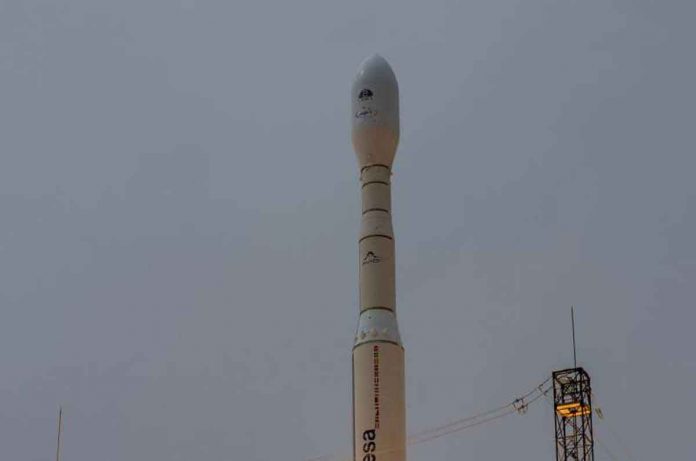The European Space Agency celebrated the first flight of its Vega-C rocket on Wednesday, which is designed to give customers more bang for their buck in the increasingly competitive business of launching satellites into orbit.
The Vega-C rocket is an upgrade to the Vega rocket, which debuted in 2012 as a launcher specialising in launching small payloads into space. The new rocket can carry heavier payloads while using less fuel than its predecessor.
The European Space Agency says Vega-C will be especially useful for launching Earth observation satellites, but it will also serve as the carrier for Space Rider, an uncrewed robotic laboratory that will be the agency’s first reusable space vehicle.
The launch of the 35-meter (115-foot) tall rocket from French Guiana was twice delayed due to technical issues, but succeeded on the third attempt.
Vega-C accelerates much faster than its bigger brother Ariane 5, reaching 16,000 kilometres per hour (almost 10,000 miles per hour) within two minutes of launch. ESA’s workhorse heavy launcher, the Ariane 5, is also due for an upgrade soon.
On Wednesday, the Vega-C rocket launched an Italian-made satellite called LARES-2, which resembles a giant disco ball and will serve as a target for a ground-based laser station, as well as six small cube-shaped mini-satellites containing scientific experiments from France, Italy, and Slovenia.
The head of ESA has announced a series of ambitious new projects as Europe attempts to compete in the growing space business with the United States, China, and new private sector rivals.
The agency is also working on Vega-E, a less polluting variant that runs on liquid oxygen and methane. The launcher is expected to be operational by 2026.

